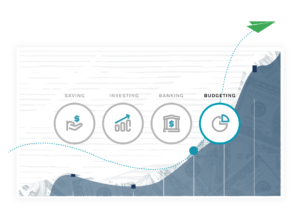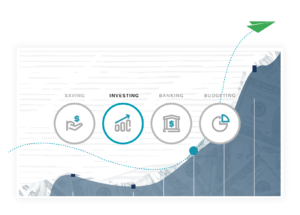Details Are Part of Our Difference
Embracing the Evidence at Anheuser-Busch – Mid 1980s
529 Best Practices
David Booth on How to Choose an Advisor
The One Minute Audio Clip You Need to Hear
Category: Hillfolio
Compounding Wisdom: Budgeting 101

This is the latest in our series of introductory “101” financial guides. Each guide reveals a set of wise actions as well as a set of behaviors to avoid. The goal? Help you make smart choices at every turn in your financial road trip. Your financial success will be exponentially enhanced when you make wise financial decisions repeatedly over a long period. This month’s focus is Budgeting, the center of your financial plan.
Compounding Wisdom: Budgeting
Compound Wisdom Actions
- Write it down – a budget is a formal, written monthly plan for your money, developed before you spend it.
- Liberate yourself – eliminate the guilt that comes with spending, knowing it was all part of the plan.
- Be patient – it takes three or four months of budgeting experience to feel confident in your plan.
- Toss the straitjacket – plan for fun, so your budget expands and doesn’t constrict your life.
- Keep it balanced – plan for all your needs, enough of your wants, and most of your savings.
- No leftovers – a zero-based budget accounts for every dollar of income, spending, and savings.
- Every dollar has a name – each dollar is either spent or saved and is assigned a category.
- Keep it simple – create a great budget with less than 20-30 categories.
- Keep track – track actual spending so you can adjust your plan for the next month as you improve.
- Minimize marital stress – it’s much easier to discuss money before it’s spent rather than after.
- Set it and forget it – using an automated tool is a painless way to plan and track your money.
Actions to Avoid
- Failing to plan is planning to fail – Don’t procrastinate; jump in, and start a monthly plan today.
- Too needy – don’t limit your budget to just the necessities – plan for family fun and relaxation too.
- What happened? – the plan has limited value if you don’t track your actual results and evaluate the plan each month or so.
- Cast it in stone – don’t treat your budget as a “read-only” document – update it often as life changes.
- Give up too soon – financial planning gets easier over time, but you must get through those first few months of learning and developing your plan.
- Mind the gap – don’t forget about planning for emergencies, gifts, vacations, large purchases, kid’s activities, and all those non-recurring one-off expenses.
Feel free to pass this along if you know someone who might benefit from the guidance and look for more from me in this monthly series.
I lead our Hillfolio level client service and planning efforts, learn more about me here and reach out if I can help you put the magic of compounding on your side.
Compounding Wisdom: Investing 101

I taught personal finance and leadership at the high school level for over twelve years. One of my favorite concepts I loved to communicate was the magic of compounding. Although great financial value is derived by recognizing the wisdom of compounding, I believe there is even greater value in recognizing the compounding of wisdom.
Could your financial success be exponentially enhanced by making wise financial decisions repeatedly over a long period?
In the months ahead, I’ll share important ideas I’ve seen result in positive financial outcomes, and give you the roadmap. The goal? Help you make wise choices at every turn in your own financial road trip. Think of it as an introductory – or “101” – guide to compounding financial wisdom.
Compounding Wisdom on Investing:
Compound Wisdom Actions
- Pay yourself first – invest every time you get paid, even if the amounts seem small, through automatic transfers to either your 401k/403b or personal accounts.
- Stretch to invest – target 15%-25% of your income to save or invest each year.
- Diversify – spread your investments across multiple asset classes to manage risk.
- Leave nothing on the table – make sure you receive the full match your company offers.
- Look out for Roth – consider the Roth 401(k) option if available in your employer plan.
- Control for fees – you can’t control returns, but you can control investment fees by investing in low-cost funds.
- Keep emotions in check – you invest for the long term, so resist the urge to trade urgently, or time the market.
- Rebalance – keep your investment allocation in balance across asset classes.
- Harvest your losses – take advantage of down markets to accumulate valuable capital losses.
- Be aggressive – as a young adult, don’t fear an allocation that is dominated by equities.
- Look under the covers – many target date funds are costly and may not be appropriately allocated.
- DIY is difficult – work with an advisor who always works in your best interest (also known as a Fiduciary).
Actions to Avoid
- Waiting to get started – your most valuable dollar invested is your first.
- Failing to sign up for employer retirement plan – start the first month you are eligible.
- Failing to earn the entire match – one of the only free lunches around.
- Investing in mutual funds with high fees – don’t be seduced by sexy short-term returns that are unlikely to persist.
- Paying penalties – don’t incur penalties by withdrawing from retirement accounts early.
- Abandoning your plan – don’t get sucked into the latest “can’t miss” stock recommendation you hear online or from a friend.
- Timing the market – invest regularly or whenever you can, as early as you can.
- Loving your company too much – monitor the risk you may incur from owning too much company stock.
Feel free to pass this along if you know someone who might benefit from the guidance and look for more from me in this monthly series.
I lead our Hillfolio level client service and planning efforts, learn more about me here and reach out if I can help you put the magic of compounding on your side.
Helping You Avoid the Behavior Gap

We talk a lot about the importance of education because we believe that educated investors are disciplined. In our experience, discipline builds confidence —and confident investors have a better experience. But we also know that we can go months, even years, without a real test of confidence. A test like we are facing now.
The coronavirus pandemic has shaken nearly every aspect of life and sent the markets into wild swings of despair and euphoria depending on the day’s headlines. With this much uncertainty and this level of market volatility, investors must be especially vigilant against falling into the Behavior Gap.
The Behavior Gap is the name coined by author and podcast guest, Carl Richards, to describe the fact that most investors earn less than the market’s returns, simply because they make poor decisions. Chasing hot stocks when the markets are booming or panicking and moving your money into cash—this is the kind of behavior that creates the gap. And it’s a real, quantifiable number.
For 25 years, the research firm DALBAR has been publishing its analysis of the difference between the average investment return, and the average investor return—and it looks bad for the average investor (though some journalists discount the findings and methodology).
For example, stocks have delivered an average annual return of roughly 9% over the last 30 years, while bonds have delivered an average annual return of 6%. If we imagine a 50/50 balanced stock and bond portfolio, that means the investment markets have delivered a 7.5% average annual return over the past 30 years. The average investor, though? They’ve only achieved a 4% average annual return. That difference of 3.5 percentage points per year for the last 30 years adds up to a huge number.
Say you had $1 million in your retirement account. A 4% annual return for 30 years would result in a balance of about $3 million. But if you’d gotten the market’s combined 7.5% investment return, you’d have almost $9 million after 30 years. The Behavior Gap in your savings, then, is missing out on $6 million—all because you let emotions into your investment decisions.
Right now, the risk of succumbing to emotion is especially high. A friend of mine, who is a successful businessman, recently sent me a note saying he was day-trading while sitting at home in quarantine. He’s buying stock in Zoom and pharmaceutical companies, thinking he can predict what’s going to happen and pick up a few wins. He’s a smart guy who really understands commercial real estate, yet here he is making classic investment mistakes. He’s in the Behavior Gap.
I urged him stop gambling with his money and consider allocating it into 13,000 stocks spread all over the world, like we do. Then I encouraged him to get off the couch and find some other way to pass his time. Because the pernicious thing about the Behavior Gap is that it doesn’t just cost us money. It can have the same draining effect on our happiness as it does on our investment accounts.
As Carl Richards told Matt in his recent podcast interview, he now applies the Behavior Gap concept to any activity that we engage in hoping to improve our situation, but which in fact produces a suboptimal result. Just as making ill-timed, emotional investment decisions hurts our long-term returns, spending emotional energy on things that aren’t useful produces a lot of unnecessary pain, suffering and anxiety.
That’s why we also emphasize to clients the importance of focusing on the things that bring real meaning to their lives. In fact, a framed print of one of Carl Richards’ famous sketches hangs on the wall of Matt’s office, reminding us that our job is to help people stay focused on the small overlap between things that matter and things they can control.
So even as we face ongoing uncertainty about what the post-coronavirus world will look like, remember to focus on what matters, and what you can control. That includes having faith in the evidence that this market downturn, like others, will end. Stocks will recover and disciplined investors will be rewarded. In the meantime, we will be taking care of what we can control, like rebalancing your portfolio and harvesting losses.
Keeping the faith, staying disciplined—that’s exactly what makes our clients different from the “average” investor. And it’s how we help you avoid falling into the Behavior Gap.

